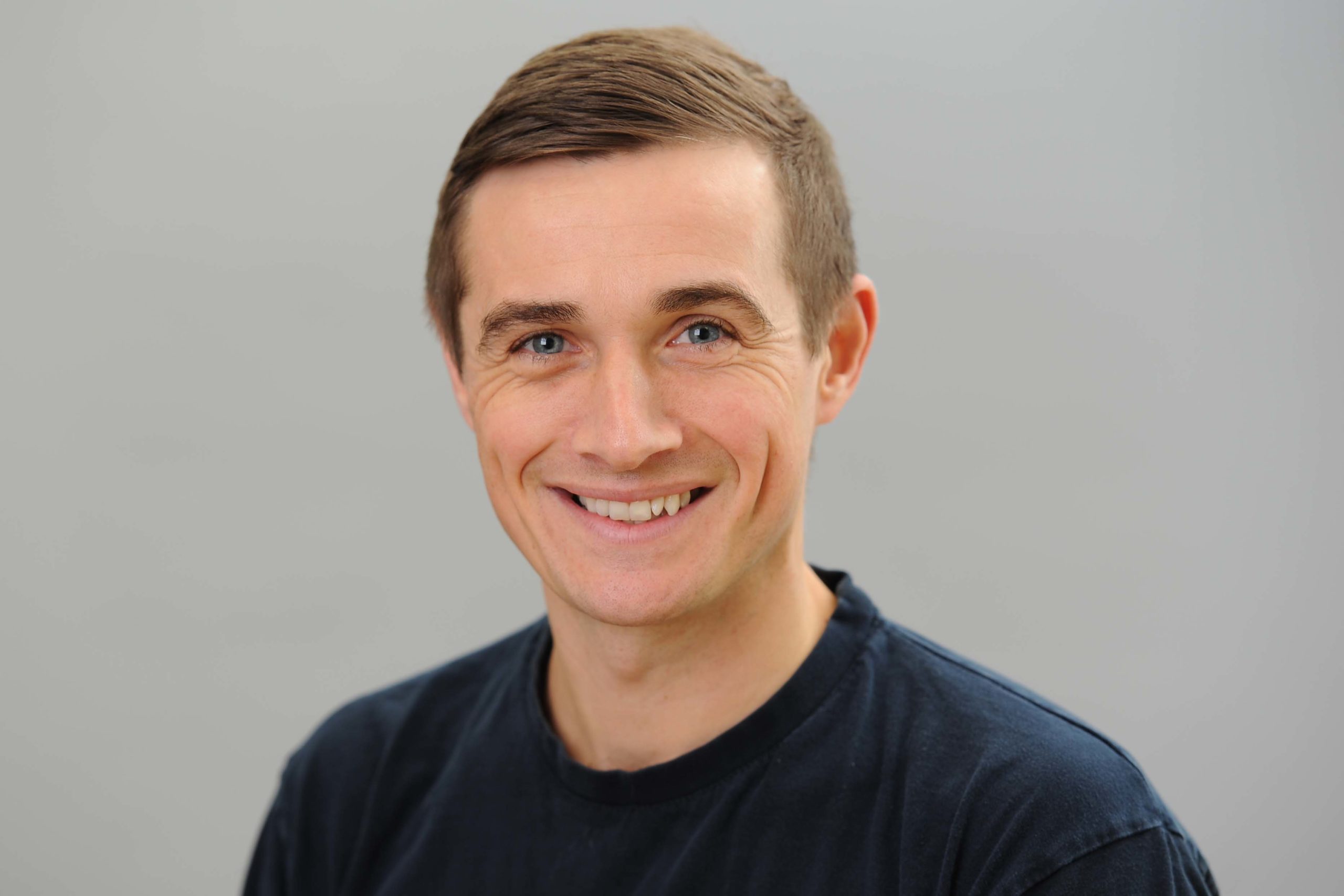Billy Boyle
BioLeader Interview – Billy Boyle, Chief Executive Officer, Owlstone Medical (January 2022)

Billy Boyle is an engineering graduate from the University of Cambridge. He is one of the original co-founders of Owlstone Inc, spun out of Cambridge in 2004 with the goal of developing the applications of field asymmetric ion mobility spectroscopy (FAIMS).
Billy started to focus on the medical applications of FAIMS technology after his wife, Kate, was diagnosed and later died of colon cancer as a result of a late diagnosis. He worked closely with clinical partners who integrated FAIMS technology across a broad spectrum of research studies.
Positive results helped to spin-out, and secure initial funding for, Owlstone Medical. With ongoing clinical and commercial success, Billy led this process and became the founding CEO upon the close of a $7M investment in March 2016. The mission of Owlstone Medical is to save 100,000 lives and $1.5B in healthcare costs. As of 2021, the company has secured over $150M of investment.
Owlstone Medical has developed Breath Biopsy with the goal of creating non-invasive breath tests to support early detection and precision medicine of diseases including cancer, asthma, COPD and liver disease. The company works with leading academic institutions and industry leaders such as Astra Zeneca, J&J and GSK.
Billy is also a judge for the Cancer Research UK (CRUK) Pioneer award and a trustee of the Linacre Institute. He was made a Fellow of the Royal Academy of Engineering in 2020 and an MBE in 2021.
Key milestones in your career journey to date?
- As a passionate/obsessive electronics engineer from Belfast, I took up the offer to study at Cambridge which catalysed my life and career.
- A research role with the University of Cambridge followed, focused on developing microchips; and where I met my fellow Owlstone Co-Founders, David Ruiz-Alonso and Andrew Koehl.
- We shared an interest in chemical sensing and were enticed by the start-up world and entrepreneurship rather than heading for the City like many of our contemporaries.
- Our first business plan to launch Owlstone Ltd was created in 2004 within the Cambridge University Student Entrepreneur (CUED) society and with the support of an amazing infrastructure of experienced mentors like Walter Herriot and Peter Laitenberger.
- The initial focus of the company was on security and industry applications but we soon became aware of the potential for our technologies in diagnostics, which attracted a lot of interest from academics searching for reliable biomarkers.
- Changing our ability to diagnose and treat illnesses through better testing became my enduring passion in 2014 following the death of my wife from late-stage colon cancer. I just knew that if the technology and tests existed to diagnose cancer sooner, the outcome could have been very different.
- Owlstone Medical spun out in 2016 with a mission to save 100,000 lives. To date, we’ve raised $150M of investment and we are making great progress towards new diagnostic tests through our clinical trials. We are already processing breath tests for NHS patients with digestive health problems and our Breath Biopsy research products are used by leading pharma and academic groups globally to investigate a wide range of illnesses from asthma and COPD to cancer, cirrhosis and heart disease.
Who has had the greatest influence over your career?
- Addressing some of the world’s biggest healthcare challenges with completely new ideas comes with a lot of risk and uncertainty. I’ve valued the support we’ve had throughout our journey from investors such as Horizon Ventures that have the belief and vision to support disruptive ventures.
- Cambridge is a unique and generous place for young students and aspiring entrepreneurs. We’ve benefitted a lot from established leaders like Andy Richards and Darrin Disley that gave us their time and support to get Owlstone started.
- Cancer Research UK Cambridge Cancer Centre: Bruce Ponder, Robert Rintoul, Rebecca Fitzgerald and Richard Gilbertson who are playing pivotal roles in the clinical trials that are allowing us to show the value of our technology in early cancer detection and beyond.
Your approach to spotting and developing high performing teams?
- The success of Owlstone Medical is all about our people. What we’re trying to do is hard and involves a vast amount of expertise across all kinds of specialisms. Building multi-disciplinary teams that support, understand and challenge each other is vital to our rapid progress.
- Our company mission is to save 100,000 lives and I think that’s a really powerful motivator for a lot of people. It has certainly helped us to create a fantastic team that are driven to be as fast and effective as possible.
- We’ve also created a culture built on our company values and beliefs, which include ‘owlways be helping’ a value that attracts colleagues who work collaboratively to solve tough scientific problems, and who demonstrate willingness and persistence to support each other to succeed.
What attributes make an outstanding leader in today’s world?
- Different people lead in different ways and it needs to be something that works for you and your team, but a leader should provide direction, so I think finding the right societal challenges – something you can all work towards – and helping your team to understand and relate to those challenges is a key part of the role of a leader.
- You also need to have the right people. A leader can’t do everything, so you need to have people that complement your skills and who mutually trust and rely on each other. You need an outstanding team whose attributes and talent create a multi-disciplinary force for excellence.
- Finally, a leader needs to have humility, Owlstone Medical isn’t about me, or any one person, it’s about serving the greater good of your community, through collaboration not individual ambition.
How do you create a culture of continual learning, innovation and curiosity?
- The multi-disciplinary nature of what we do means we’re always teaching and learning from each other and this is something we encourage across the company. Everyone has their own strengths and specialisms but we also encourage sharing of knowledge and invite anyone to propose and challenge new ideas.
- Empowering everyone to challenge and question things head-on is key too. We need to understand the problems we face if we are to overcome them and that means asking questions and learning. As a science-led organisation, several of our values focus on making decisions based on data, and on taking a critical approach to new information to make sure we’re always moving in a direction that is justified and supported by the science.
- I am always impressed and reassured to see members of our team constructively challenge each other based on their own respective experiences and insights.
Tell me something about your company that you would like to share with the PIR community?
- Owlstone Medical is the world-leader in Breath Biopsy for early detection and precision medicine. Although it’s easy to overlook, breath is much more than just hot air, it contains a rich mixture of compounds that can be examined for their relevance to health and disease. They don’t just reflect what’s going on in the lungs either, the rapid exchange of chemicals between breath and blood means there’s potential information in there from across all parts of the body.
- In the last year we started providing and processing breath tests to help detect digestive health issues and we’re carrying out research with the goal of providing test to help detect lung cancer and liver diseases, as well as to improve the treatment of chronic respiratory diseases like asthma.
How has your company created a more diverse culture in the last 2 years; and what do future challenges look like?
- Our culture embraces difference, recognising that cancer does not discriminate. We recently established an equality, diversity and inclusion group to champion diversity within the organisation and to help drive changes to enable us to better support and celebrate our uniqueness.
- Flexible working and hybrid meetings have been an aspect of working at Owlstone for much more than the last two years, and we have made a point over the last two years of listening to the whole team to understand their changing needs and find ways to adapt our working practices and workspaces to help everyone to continue to give their best and balance their lives during a challenging and unpredictable time.
- Taking on big challenges means bringing together the best people and allowing them to be free to be themselves and to do their best work. We work hard to do this and, in some ways, the shift toward home working has helped to expand our horizons to recruit people around the world.
What will be the biggest technological transformation in your sector, or across the sector, over the next 5 years?
- The idea of breath testing isn’t new, but COVID-19 has driven a rapid change in people’s awareness and interest in using breath for diagnosis and treatment. It has also increased familiarity with concepts like at-home testing, as well as highlighting the need for better diagnostics to alleviate the pressure on healthcare systems.
- The opportunities for early detection are enormous, detecting cancer early can improve survival from as little as 10% up to 90% or more, while reducing the extent, severity and costs of treatment. There are so many illnesses that could benefit from improved early detection, and that’s before you get to the less researched areas like chronic liver disease.
- And then you have precision medicine, using breath tests to select and optimize treatments based on the properties of a patients’ illness the potential here in oncology, respiratory diseases, digestive health, and more, is extensive and keeps growing as more and more targeted therapies become available.
What advice would you give George Freeman, Minister for Science, Technology & Innovation, given his stated mission to grow these sectors by 1000% over the next ten years?
- Collaboration is the key and the challenge for the future of science, technology and innovation. Driving growth is about uniting people around objectives that are meaningful and relevant, and then providing co-ordinated strategies that enable and support them to work together to achieve things beyond the scope of any single specialism.
- The goal should also be to span sectors, bring together academia and industry to facilitate close working that can deliver measurable progress towards significant goals.
What is your hidden talent or something that might surprise others about you?
- I’m a runner and I now run ultra-marathons. For me the races and the training are about much more than discipline or exercise, running is also where most of my inspired ideas arise!
What advice would you give your 23-year old self?
- The interesting stuff can be found where science, technology and engineering meet. Find the potential in those borders and surround yourself with people who can help you to bridge them.
- You can’t do it all alone, learn to ask for help when you need it and build a supportive network that can help you to grow and that will be there for you in the hard times.
Words of wisdom?
- Best Advice I was given: “Let your hook always be cast and there will be a fish where you least expect it” Ovid.
- Advice I’d give: Recognise serendipity when it arises; and if you have prepared yourself for all eventualities – your hook is cast – you will be able to take advantage of this.
- What I wish I’d known:
- Find good mentors who guide and believe in you when self-doubt arises.
- You will face new and different problems everyday – this is normal, embrace it – this is how progress happens.
Click here to read more of our BioLeaders interviews.

